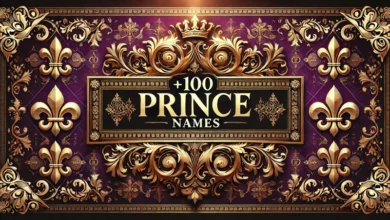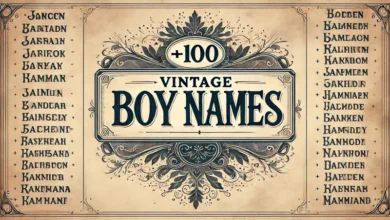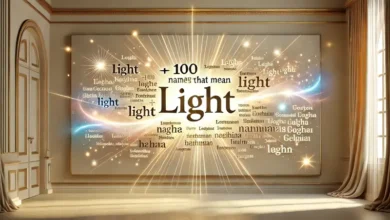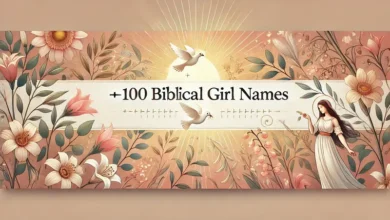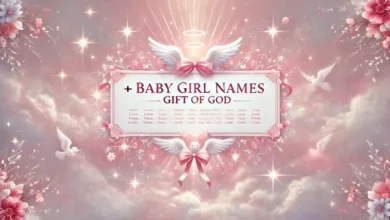Baby name
Baby Names Meaning Moon (+125 Girls, Boys…)
For copy name or description, please click on that!
| Name | Description |
|---|---|
Tidalia | She Who Sways the Tides. |
Jovian | Related to Jupiter, but evoking the grandeur of all celestial bodies, including the moon. |
Cosmo | While it means “order” and “beauty” in Greek, it evokes the cosmic dance of celestial bodies, including the moon. |
Nebulor | Weaver of Clouds. |
Celena | A variation of Selena, meaning moon in Greek, reflecting the clear, pure light of the celestial body. |
Have you ever gazed up at the moon, its silvery glow casting a magical light on the world below? For centuries, this celestial orb has captivated humanity, inspiring myths, stories, and even baby names! If you’re looking for a name that evokes mystery, beauty, and a touch of the otherworldly, then look no further than moon-inspired names.
Girl Names Inspired by the Moon
- Lunara – Derived from “Luna,” the Latin word for moon, representing the glow and beauty of the night sky.
- Selenea – Inspired by Selene, the Greek goddess of the moon, embodying the serene and powerful presence of the lunar deity.
- Maevea – Meaning “she who intoxicates,” akin to the captivating allure of the full moon.
- Cynthiana – After Artemis, also known as Cynthia, a goddess of the moon, highlighting the purity and huntress aspect.
- Phoebea – Named after one of Saturn’s moons, reflecting a bright, celestial light.
- Dianara – Evoking Diana, the Roman goddess of the moon, focusing on the divinity and protectiveness of the night.
- Aylara – Meaning “circle of light around the moon,” symbolizing the halo effect seen on clear nights.
- Celestina – From the Latin ‘caelestis’, meaning heavenly or celestial, embodying the ethereal beauty of the moonlit sky.
- Argenta – Signifying silver, like the gleaming surface of the moon, capturing its radiant essence.
- Nyxara – After Nyx, the Greek goddess of the night, for a child born under the dark but illuminated by the moonlight.
- Eclipsa – Inspired by the celestial event, for a girl who is rare and has a transformative impact.
- Mona – A simple yet profound name, echoing the ancient word for moon and signifying the singular beauty of its light.
- Hala – Meaning “halo around the moon” in Arabic, for a girl with a captivating aura.
- Lumina – Latin for “light,” evoking the bright, guiding light of the moon in the night sky.
- Thalassa – After a moon of Neptune, symbolizing the deep, unexplored mysteries and beauty of the ocean, just as the moon controls the tides.
- Sidera – Means “of the stars,” but also evokes the moon’s presence among them, shining with a light reflected from another source.
- Chandra – Sanskrit for “moon,” capturing the essence of lunar beauty and serenity.
- Seluna – A blend of Selene and Luna, for a girl who embodies the power and beauty of the moon goddesses.
- Artemie – Inspired by Artemis, with a twist for uniqueness, reflecting the goddess’s connection to the moon and wilderness.
- Esmeray – Turkish for “dark moon,” for a girl with a mysterious and enchanting presence.
- Mirelle – French for “to admire,” evoking the admiration one feels when gazing at the moon.
- Lunette – A diminutive of Luna, suggesting a smaller, delicate version of the moon’s beauty.
- Quila – Inspired by “Tranquility,” reflecting the Sea of Tranquility on the moon, a site of peace and serenity.
- Diana – Roman goddess of the hunt and the moon, representing independence and the nocturnal light.
- Ayla – Meaning “moonlight” in Turkish, symbolizing the gentle, guiding light of the moon.
- Celena – A variation of Selena, meaning moon in Greek, reflecting the clear, pure light of the celestial body.
- Lunaria – Named after a plant that resembles the full moon, for a girl with a natural, ethereal beauty.
- Moon – A direct but magical name, embodying the entire essence of the celestial sphere in the night sky.
- Neoma – Meaning “new moon” in Greek, symbolizing new beginnings and the promise of growth.
- Soleil – While typically meaning “sun” in French, it contrasts with the moon’s reflected light, for a girl who shines brightly against the darkness.
- Talia – Hebrew for “dew from God,” as refreshing as the moon is soothing in the dark sky.
- Vespera – Latin for “evening star,” often seen alongside the moon, for a girl who thrives in the twilight.
- Yue – Chinese for “moon,” capturing the simplicity and beauty of the moon’s influence.
- Zelenia – Inspired by the Greek Selene, with a twist, for a unique connection to the moon goddess.
- Kamaria – Swahili for “moonlight,” reflecting the enchanting and soft glow that illuminates the night.
Boy Names Inspired by the Moon
- Endymion – Named after the mortal loved by the moon goddess Selene, representing eternal beauty and youth.
- Lorcan – Meaning “little fierce one,” reminiscent of the wolf’s howl at the moon, symbolizing strength and wildness.
- Artemon – Hinting at Artemis’ counterpart, for boys, celebrating the protective and nurturing aspects of the moon.
- Quirino – An ancient god associated with the heavens, invoking the mysterious powers of the moon.
- Mannix – Meaning “monk,” evoking the solitude and contemplation under the moon’s watchful eye.
- Jacinth – Named after a precious stone that glows under moonlight, signifying rarity and value.
- Heliosar – While Helios is the sun god, “sar” can imply reflection, symbolizing the moon reflecting the sun’s light.
- Triton – After Neptune’s largest moon, suggesting a strong gravitational pull and influence, just like the moon affects the tides.
- Leonis – Meaning “lion,” a creature associated with strength and majesty under the moonlit savannah.
- Samir – Meaning “companion in evening talk” in Arabic, perfect for peaceful nights under the moon’s glow.
- Apollo – After the NASA missions to the moon, representing ambition and the spirit of exploration.
- Jericho – A name that suggests strong foundations, as the walls of Jericho fell to the sound of trumpets, possibly under a moonlit sky.
- Loar – From the Breton word for moon, symbolizing a light in the darkness, guidance, and protection.
- Máni – Norse god of the moon, for a boy with a gentle yet powerful influence.
- Orbit – For a boy who is central to his family’s world, just as the moon orbits the earth.
- Phobos – Named after one of Mars’ moons, symbolizing fear, but also the courage to face and conquer it.
- Quasar – Though it refers to a brilliant celestial object, it evokes the power and mystery of the cosmos, including the moon’s own mysteries.
- Rohan – Meaning “ascending” in Sanskrit, evoking the rising moon and its promise of enlightenment and growth.
- Sirius – Named after the brightest star seen from Earth, for a boy who stands out with his brilliant personality, as the moon does among stars.
- Talay – Means “sea” in Turkish, reflecting the moon’s pull on the tides and its deep, emotional pull on the human spirit.
- Tiberius – Though historically a Roman Emperor’s name, it evokes the timeless and commanding presence of the moon in our night sky.
- Roshan – Persian for “light” or “bright,” a name that can reflect the bright light of the moon illuminating the darkness.
- Levian – Inspired by “levare,” Latin for “to lift,” symbolizing the moon’s rise and its uplifting glow.
- Silvano – From “silva,” meaning forest; a name for one who thrives under the moonlight in the natural world.
- Arun – Meaning “dawn” in Sanskrit, it captures the moment the moon gives way to the sun, a blend of night and day.
- Belin – Ancient deity associated with the moon, suggesting wisdom and a strong connection to the celestial.
- Cosmo – While it means “order” and “beauty” in Greek, it evokes the cosmic dance of celestial bodies, including the moon.
- Dargo – Inspired by “dark” and “glow,” for a boy who is mysterious with a subtle inner light, like the moon.
- Elio – A variation of Helios, the sun god, but chosen for a boy who is the counterpart to the sun, reflecting its light like the moon.
- Fenrir – Named after the mythical wolf that chases the moon in Norse mythology, for a boy with a wild and untamed spirit.
- Galen – Means “calm” in Greek, evoking the peaceful presence of the moon in the night sky.
- Hadi – Arabic for “guide,” as the moon guides travelers and sailors at night with its light.
- Izar – Basque for “star,” but fitting for a boy who shines with a light that complements the moon in the night sky.
- Jaron – Hebrew for “to cry out,” akin to a howl at the moon, for a boy with a strong, resonant presence.
- Kairos – Greek for “the right moment,” symbolizing the perfect timing of the moon’s phases and their impact on the world.
Moon God Names
- Lunivor – The Harbinger of Tides.
- Selorin – Keeper of the Night Sky.
- Mondarion – The Whisperer of Wolves.
- Cresilux – Bringer of Crescent Light.
- Nocturion – Guardian of Starlit Secrets.
- Galaxius – The Cosmic Dreamer.
- Phasor – Master of Lunar Cycles.
- Tidalon – Lord of Ocean’s Breath.
- Argentus – The Silver Veiled.
- Eclipser – Shadow of the Cosmos.
- Orbilon – The Eternal Orb Watcher.
- Duskarn – The Twilight Sovereign.
- Lumithron – He Who Commands the Glow.
- Nebulor – Weaver of Clouds.
- Reflector – Mirror of the Sun’s Light.
- Sombraeon – The Dark Silence.
- Tenebrix – The Veil Between Worlds.
- Umbraziel – Keeper of Shadows.
- Vespero – Herald of Evening’s Onset.
- Waxorin – The Waxing Strength.
- Zelenyx – The Jade Serenity.
- Asteron – The Starlit Path.
- Crateros – Sculptor of Dark Seas.
- Dimensius – Lord of Dimensions.
- Eternox – The Endless Night.
Moon Goddess Names
- Lunarae – She Who Dances in Silver Light.
- Selenea – The Serene Reflection.
- Moonara – Whisperer to the Sleepless.
- Crescelia – The Crescent Enchantress.
- Stellara – Mistress of Starry Veils.
- Galaxina – Weaver of Constellations.
- Phaseya – The Eternal Cycle.
- Tidalia – She Who Sways the Tides.
- Argentia – The Silvery Way.
- Eclipsia – Shadow Goddess of Mystery.
- Orbissa – Guardian of the Orb.
- Duskella – The Twilight Beauty.
- Luminea – The Soft Glow.
- Nebulae – The Nebulous Form.
- Reflectia – The Sun’s Muse.
- Sombrelia – The Darkened Silk.
- Tenebrisia – She of the Hidden Realm.
- Umbralya – Veil of the Night.
- Vesperina – The Star’s First Light.
- Waxalia – Goddess of Growing Light.
- Zelynx – The Lunar Grace.
- Astrella – The Star’s Whisper.
- Craterina – The Cradle of Darkness.
- Dimensara – She of Many Realms.
- Eternixia – The Unending Veil.

Gender-Neutral Names That Mean Moon
- Lunex – A blend of “Luna” and “Equinox,” suggesting balance and the changing phases of the moon.
- Moonray – Evoking the moon’s light that reaches across the dark sky.
- Selix – Inspired by Selene, the Greek goddess of the moon, with a modern twist.
- Creson – Reflecting the crescent phase, symbolizing growth and new beginnings.
- Noctis – Latin for “night,” embodying the domain of the moon.
- Galilean – After Galileo, who studied the moon, suggesting discovery and curiosity.
- Phasio – From “phase,” indicating the ever-changing nature of the moon and life.
- Tidius – Hinting at the tide, which is influenced by the moon’s gravitational pull.
- Argen – Short for “Argentum,” meaning silver, and evoking the moon’s gleaming surface.
- Eclipto – Inspired by the eclipse, a rare and striking lunar event.
- Orbitar – Signifying the moon’s path around Earth, representing journeys and cycles.
- Dusko – Derived from “dusk,” the time when the moon often becomes visible.
- Lumyn – A play on “luminous,” for someone who is a guiding light.
- Nebulo – After “nebula,” for the moon’s ability to inspire us to look beyond.
- Reflecta – Symbolizing the moon’s reflection of the sun’s light, and the idea of reflection in life.
- Sombrae – Spanish for “shadow,” representing the moon’s mysterious dark side.
- Tenebro – From “tenebris,” Latin for darkness, yet holding the promise of light.
- Umbriel – After a moon of Uranus, suggesting exploration and the unknown.
- Vespero – Latin for “evening,” when the moon often graces the sky.
- Waxen – Symbolizing the waxing phase of the moon, a time of growth and accumulation.
- Zelen – Inspired by “Selene” but with a twist, making it unique and memorable.
- Asteri – Greek for “star,” acknowledging the moon among the celestial display.
- Cratere – Reflecting the moon’s craters, a symbol of history and endurance.
- Dimensa – Suggesting vastness, like the dimensions of the night sky the moon inhabits.
- Eterna – For the timeless aspect of the moon, ever-present and enduring.
- Gibbous – Named after the moon phase, for those who are almost at full brilliance.
- Halcyo – From “halcyon,” peaceful, reflecting the calming presence of the moon.
- Illuma – For the illuminating role of the moon in the darkness.
- Jovian – Related to Jupiter, but evoking the grandeur of all celestial bodies, including the moon.
- Kaiyo – Japanese-inspired, meaning “ocean,” for the moon’s influence over the tides.
- Lunaria – A botanical name that suggests the moon’s natural beauty.
- Mareo – After “mare,” the large, dark plains on the moon’s surface.
- Nectar – Symbolizing the sweetness and allure of the moonlit night.
- Oceano – For the ocean’s response to the moon, a name that speaks of depth and emotion.
- Polaris – A guiding star, for one who is guided by the moon’s phases.
- Quasar – Though technically a celestial phenomenon, it evokes the distant, mysterious nature of the cosmos.
- Rune – For the ancient, mysterious symbols that might be compared to the moon’s phases.
- Sidereo – From “sidereal,” relating to the stars and moon’s position in the sky.
- Tidal – Directly inspired by the moon’s influence on Earth’s seas.
- Umbral – Referring to the darkest part of a shadow, like that cast by the earth or moon during an eclipse.
- Verlune – A play on “ver,” meaning spring, and “lune,” for the moon’s role in the renewal of the earth.
- Whimsey – For the whimsical influence of the moon on poets, artists, and dreamers.
- Xylo – Inspired by the forest (xylo-), where the moonlight filters through the trees.
- Yonder – Evoking the distant and mysterious, much like the moon itself.
- Zephyr – A gentle breeze, reminiscent of the soft light of the moon.
- Aurora – Typically associated with the northern lights, but evocative of the moon’s light as well.
- Boreal – Related to the north, where the moon plays a significant role in the night sky.
- Caelum – Latin for “sky,” encompassing the realm of the moon.
- Drift – For the drifting appearance of the moon across the night sky.
- Ether – Suggesting the heavens and the ether through which the moon travels.

